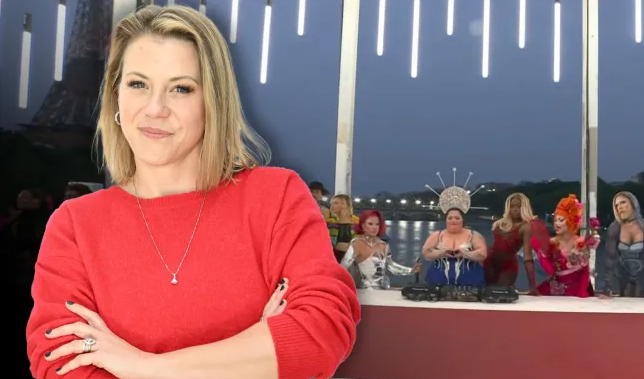Contents
Introduction
Jodie Sweetin, best known for her role as Stephanie Tanner on the beloved TV show Full House, has once again stepped into the spotlight, but this time it’s not for her acting. Recently, Sweetin made headlines for defending drag performances amid some unexpected drama involving her former Full House castmates. This has sparked quite a buzz on social media, with fans and critics alike weighing in on the situation.
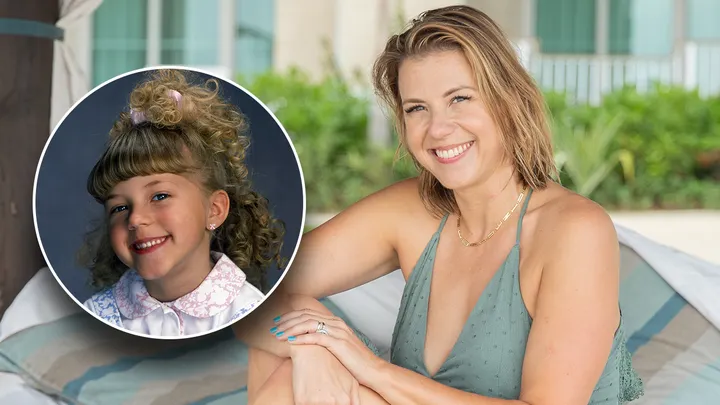
For those who grew up watching Full House, Sweetin is a familiar face, remembered fondly for her catchy catchphrases and endearing character. But beyond the nostalgic appeal, Sweetin has built a reputation as a strong advocate for LGBTQ+ rights. Her outspoken support for the community isn’t new, but it has gained fresh attention in light of the ongoing debate over drag performances—a topic that has become increasingly politicized in recent years.
The drama began when tensions within the Full House cast surfaced, reportedly due to differing opinions on certain social issues, including drag culture. As someone who has always stood by her principles, Sweetin didn’t hesitate to voice her support for drag performances, making it clear that she believes in the importance of inclusivity and self-expression. Her stance has not only reignited discussions about the legacy of Full House but also highlighted the ongoing cultural battle over drag and LGBTQ+ rights.
In this article, we’ll dive deep into what led to this controversy, explore Sweetin’s defense of drag, and discuss why her voice in this conversation matters more than ever. We’ll also look at how this situation could impact the legacy of Full House and what it says about the current state of celebrity influence in social issues. Whether you’re a longtime fan of the show or just interested in the broader cultural implications, this is a story worth following.
The Full House Drama: What Sparked the Controversy?
Full House is more than just a TV show; it’s a piece of pop culture history. For years, it brought laughter, life lessons, and that warm, fuzzy feeling to millions of viewers. But recently, the iconic cast has been in the news for something far less heartwarming—drama that’s turned into a full-blown controversy. So, what exactly happened to bring the cast of this beloved show into the spotlight for all the wrong reasons?
It all started with a series of disagreements within the Full House family, which, like many long-running relationships, began to surface publicly. Although the show wrapped up its original run in the 1990s, the cast remained in the public eye, especially with the Netflix reboot Fuller House. But as times have changed, so have the dynamics between the cast members. The latest tension appears to be centered around differing views on social issues, including the role of drag performances in today’s culture.
Drag, once a subculture, has exploded into mainstream media with shows like RuPaul’s Drag Race, and it’s become a significant part of the conversation around LGBTQ+ rights. However, not everyone sees eye to eye on this topic. Within the Full House cast, these differing opinions have led to friction, sparking public and media interest in what was once considered a tight-knit group. The debate became even more heated when Jodie Sweetin, who played the bubbly and always honest Stephanie Tanner, stepped forward to defend drag performances, aligning herself with the LGBTQ+ community.
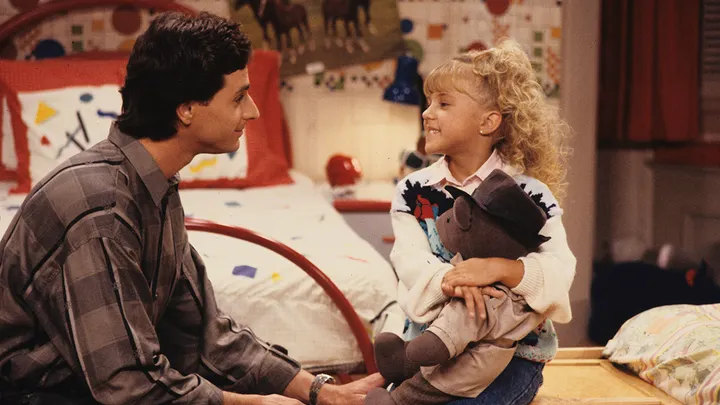
But why did drag suddenly become a point of contention? It’s not just about the performances themselves, but what they represent: freedom of expression, challenging societal norms, and a fight for acceptance. In a world that’s still divided on these issues, Sweetin’s stance struck a chord, both positively and negatively. Her defense wasn’t just about supporting drag; it was a statement on where she stands in the broader discussion of inclusivity, something that has become increasingly important in today’s cultural landscape.
In this section, we’ll unpack the series of events that led to this controversy, explore the underlying tensions within the Full House cast, and explain why this seemingly personal disagreement has taken on such a public life. Understanding the roots of this drama gives us a clearer picture of why Sweetin’s defense of drag is about much more than just a performance—it’s about standing up for what she believes in, even when it causes ripples among those she once worked closely with.
Jodie Sweetin’s Defense of Drag Performance
Jodie Sweetin has never been one to shy away from speaking her mind, and her recent defense of drag performances is a perfect example of that. As the Full House drama unfolded, Sweetin quickly found herself in the spotlight, not just because of her ties to the show but because of her outspoken support for the LGBTQ+ community, particularly when it comes to drag culture.
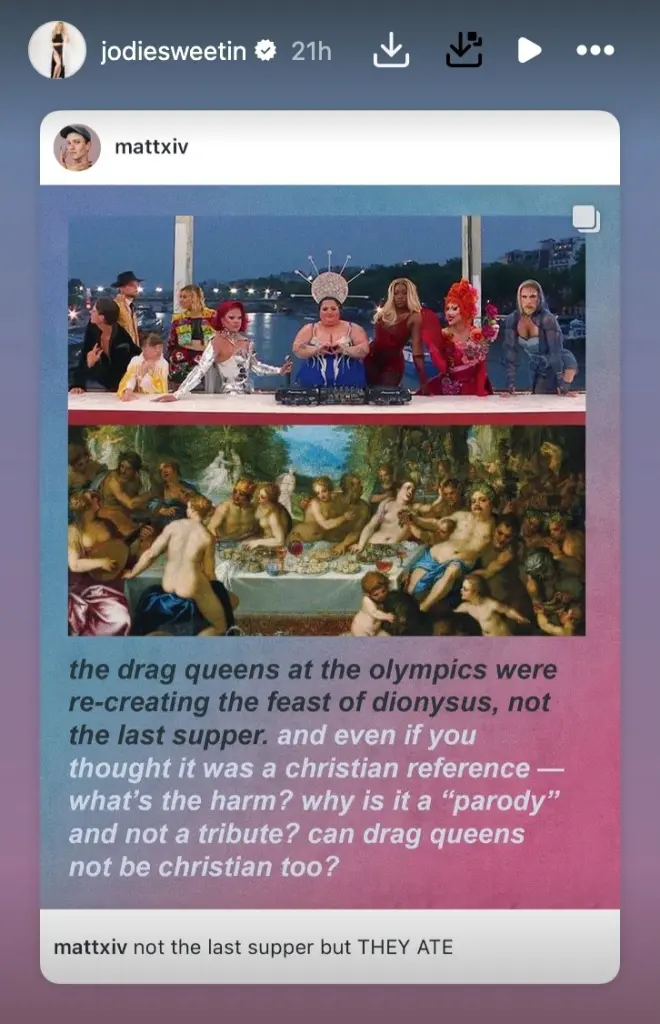
So, what exactly did Jodie Sweetin say that caused such a stir? In response to the controversy, Sweetin took to social media and other platforms to make it clear where she stands. She expressed her unwavering support for drag performances, emphasizing that drag is not just entertainment; it’s an important form of self-expression and a vital part of LGBTQ+ culture. Sweetin highlighted that drag challenges norms, celebrates individuality, and provides a space for people to be unapologetically themselves. Her comments were heartfelt and direct, reflecting her long-standing commitment to inclusivity and equality.
But Sweetin’s defense of drag didn’t come out of nowhere. Over the years, she has been an ally to the LGBTQ+ community, using her platform to advocate for equal rights and acceptance. Whether attending pride events, speaking out on social issues, or supporting LGBTQ+ charities, Sweetin has consistently shown that she believes in standing up for what’s right. Her history of activism makes her recent comments even more significant, as they are part of a broader pattern of support, rather than just a reaction to the current drama.
The reaction to Sweetin’s defense was swift and divided. On one hand, she received a flood of support from fans, LGBTQ+ advocates, and fellow celebrities who praised her for taking a stand. Many applauded her for using her platform to speak out on an issue that is often misunderstood or misrepresented. On the other hand, there were those who criticized her, arguing that her stance was too political or that it might cause further rifts within the Full House cast. The mixed reactions underscore just how polarizing the topic of drag has become in recent years, especially as it intersects with larger cultural and political debates.
In this section, we’ll delve into the details of Jodie Sweetin’s public statements, exploring what she said and why it matters. We’ll also look at her history of supporting the LGBTQ+ community and discuss how her defense of drag aligns with her broader values and activism. Finally, we’ll examine the reaction to her comments, highlighting the different perspectives and what they reveal about the current state of public opinion on drag and LGBTQ+ rights.
The Cultural Significance of Drag
Drag isn’t just about glitz, glamour, and over-the-top performances—it’s a powerful cultural force that has shaped and challenged societal norms for decades. When Jodie Sweetin defended drag performances, she wasn’t just standing up for a form of entertainment; she was supporting a movement that has deep roots in the fight for LGBTQ+ rights and self-expression. To fully understand why her defense matters, it’s important to explore what drag means in today’s world and why it continues to be such a significant part of our cultural landscape.
Drag has a long and vibrant history, evolving from underground clubs to mainstream media. Shows like RuPaul’s Drag Race have brought drag into the homes of millions, showcasing the artistry, humor, and resilience of drag performers. But beyond the wigs and makeup, drag serves as a form of resistance and empowerment. It allows individuals to explore and express their identities in ways that might not be possible within the confines of traditional gender roles. Drag performances often challenge societal expectations, using exaggeration and satire to question what it means to be male, female, or anything in between.
For the LGBTQ+ community, drag has been a crucial part of the struggle for visibility and acceptance. During times when being openly gay, lesbian, or transgender was met with hostility and discrimination, drag provided a safe space where people could come together, celebrate their identities, and find strength in community. It’s no surprise, then, that drag has become a symbol of pride and defiance, representing the ongoing fight for equality and human rights.
Jodie Sweetin’s support for drag is significant because it aligns her with this rich cultural history. By defending drag, she’s endorsing the values of inclusivity, creativity, and resistance that drag embodies. In a world where LGBTQ+ rights are still contested, having a public figure like Sweetin stand up for drag sends a powerful message. It says that drag, with all its vibrancy and diversity, is worth celebrating and protecting.
But why does her support matter so much? Celebrities like Sweetin have a platform that reaches millions, and their voices can influence public opinion. When someone with her level of recognition speaks out, it can help normalize drag and counter the negative stereotypes that still persist. It also provides visibility for the LGBTQ+ community, helping to keep issues of equality and acceptance in the public eye.
In this section, we’ll dive into the cultural significance of drag, exploring its history, impact, and why it continues to be a vital part of the fight for LGBTQ+ rights. We’ll also discuss how Jodie Sweetin’s support of drag fits into this larger narrative and why her stance is more than just a celebrity opinion—it’s a meaningful contribution to a much larger conversation about identity, freedom, and acceptance.
The Broader Impact on Full House Legacy
Full House is more than just a nostalgic TV show for many; it’s a cultural touchstone that defined a generation. The Tanner family’s wholesome antics, life lessons, and close-knit bonds left a lasting impact on audiences worldwide. But as recent events have shown, even the most beloved shows aren’t immune to controversy. With Jodie Sweetin’s defense of drag performances, the dynamics among the Full House cast have come under scrutiny, raising questions about how this drama might affect the show’s legacy.
When Full House first aired in the late 1980s, it quickly became a symbol of family values and togetherness. The show’s success was built on the chemistry of its cast and the relatable stories that resonated with viewers of all ages. For years, the cast seemed inseparable, often reuniting for special events and revivals like Fuller House. But as time has passed, it’s become clear that not all members of the Tanner family share the same views, particularly when it comes to social and cultural issues.
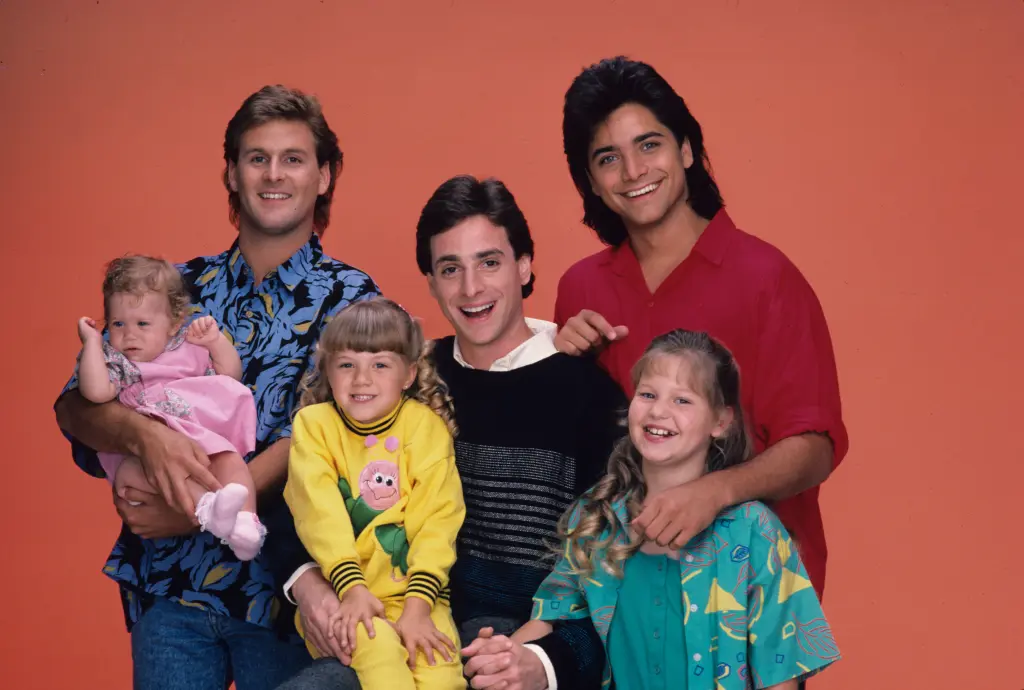
Jodie Sweetin’s recent stance on drag performances has highlighted these differences. Her outspoken support for LGBTQ+ rights, including drag culture, has been applauded by many, but it has also stirred up tensions within the Full House family. Some cast members have remained silent, while others have hinted at differing opinions, leading to speculation about whether these disagreements could strain the relationships that fans have long cherished.
The impact of this drama on the Full House legacy is twofold. On one hand, it shows that the cast members, like the rest of us, are individuals with their own beliefs and convictions. This humanizes them, reminding us that even our favorite TV families aren’t perfect. On the other hand, it raises concerns about how these public disagreements might affect future reunions, revivals, or collaborative projects. Fans who grew up watching the show may find it difficult to reconcile the image of the tight-knit Tanner family with the reality of these behind-the-scenes tensions.
But it’s not just the cast dynamics that are at stake. The controversy also has the potential to influence how Full House is viewed in the broader cultural context. As society evolves, so too does our understanding of the media we consume. Shows that once seemed innocent and uncontroversial can take on new meanings as they are re-evaluated through the lens of current social issues. Sweetin’s defense of drag—and the responses it has provoked—could lead to a re-examination of Full House’s place in pop culture, particularly in terms of how it aligns with modern values of inclusivity and acceptance.
In this section, we’ll explore how Jodie Sweetin’s stance might affect the Full House legacy, both in terms of cast relationships and the show’s cultural significance. We’ll look at fan reactions, the potential for future projects, and how this controversy could reshape the way we remember one of TV’s most beloved families. Whether it leads to a deeper understanding or creates lasting rifts, one thing is clear: the legacy of Full House is evolving, and Jodie Sweetin’s defense of drag is a pivotal part of that story.
Public and Media Response
When Jodie Sweetin took a stand in defense of drag performances, the public and media response was immediate and intense. Social media platforms lit up with opinions, both in support of and against her stance, while news outlets scrambled to cover the unfolding drama. In today’s digital age, where everyone has a voice, the reactions to Sweetin’s comments have been as diverse as the audiences who grew up watching Full House.
On social media, Sweetin’s defense of drag sparked a wide range of reactions. Fans who support LGBTQ+ rights praised her for using her platform to stand up for what she believes in. Tweets, Instagram posts, and TikTok videos flooded in, many of them celebrating Sweetin as an ally who isn’t afraid to speak out, even if it means going against the grain. Hashtags like #SupportDrag and #TeamJodie began trending, showing just how much her stance resonated with those who see drag as an important part of both LGBTQ+ culture and broader society.
But not everyone was on board. Some social media users criticized Sweetin, arguing that her comments were too political or out of touch with the more conservative values that Full House once represented. This backlash highlighted the ongoing divide in public opinion over drag and LGBTQ+ rights, with some people feeling that celebrities should stay out of political and social issues, while others believe it’s crucial for public figures to use their platforms for advocacy.
The media, as always, played a key role in shaping the narrative around Sweetin’s comments. Some outlets framed her defense of drag as a brave stand for inclusivity and equality, focusing on her history of supporting LGBTQ+ rights and her willingness to speak out. These reports often highlighted the positive reactions from fans and fellow celebrities, painting Sweetin as a progressive voice in the entertainment industry.
However, other media coverage took a more critical approach, questioning whether Sweetin’s comments might further divide the Full House cast and alienate some of the show’s long-time fans. Articles and opinion pieces debated the potential impact of her stance on her career and the Full House legacy, with some suggesting that her outspoken support for drag could lead to further controversies down the line.
Celebrity reactions added yet another layer to the discussion. Some stars came out in support of Sweetin, commending her for standing up for drag and LGBTQ+ rights. Others remained silent or distanced themselves from the controversy, perhaps wary of getting involved in a debate that has proven to be deeply polarizing. The varying responses from celebrities reflected the broader public divide, showing just how complex and sensitive the issue of drag and LGBTQ+ rights has become.
In this section, we’ll break down the public and media reactions to Jodie Sweetin’s defense of drag performances. We’ll explore the different perspectives shared on social media, analyze how the media has covered the story, and discuss the reactions from other celebrities. By understanding these responses, we can gain a clearer picture of how Sweetin’s comments are being received and what they might mean for her, the Full House cast, and the ongoing conversation around drag and LGBTQ+ rights.





